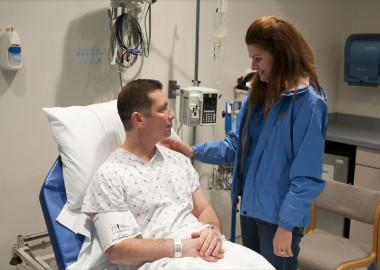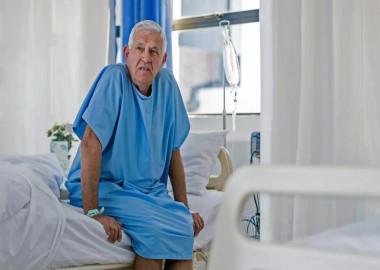You need to undergo a physical exam as well as tests to check your blood and find out how well the heart, liver, lungs and other organs are working. It is vital to get your body ready. You must remain hydrated and consume a healthy diet. Getting sufficient calories and nutrients is essential to keep your strength up throughout the procedure. A strong and healthy body responds better and helps in recovery. Keep yourself active before your transplant. It is important essential to have a friend or family members to help you with other details. You should make arrangements for a caregiver who would help you throughout your recovery phase. Prepare yourself and your family members emotionally for the transplant. You should plan who will manage all the expenses associated with the transplant.
Infection: Chemotherapy and some other treatments weaken the body's infection-fighting ability. This is particularly true of treatment given for bone marrow transplant as the bone marrow is part of your immune system. Nearly two weeks after your transplant, the immune system will start to recover. You may have a risk of infections in the first 1-2 weeks after transplant.
Bleeding: Acute bleeding is common after bone marrow transplant that is associated with morbidity and mortality.
Fertility problems: Most patients who undergo a bone marrow transplant may become infertile. If a person had a reduced intensity transplant, they are less likely to become infertile.
Cataract: Cataract is also a major risk after BMT. Single-dose TBI leads to the highest risk of cataracts. But the risk of cataract in recipients of fractionated-TBI is comparatively higher than in individuals who receive no TBI.
Kidney/liver problem: Liver dysfunction may occur after bone marrow transplantation. However, the importance of graft versus host diseases and other factors, like infection, radiation, and drugs, haven’t been clearly established.
Respiratory distress: Some side effects of the procedure can directly affect the lungs, leading to difficulty breathing. If you experience shortness of breath, you might use supplemental oxygen while the lungs continue to recover.
Graft-versus-host diseases (GVHD): The transplanted stem cells are replacing the immune system. However, sometimes the transplanted immune system can act against your body, affecting your organs. GVHD can be mild or life-threatening. The doctor will look carefully for early signs of GVHD and advise medications to control the reaction when it occurs.



